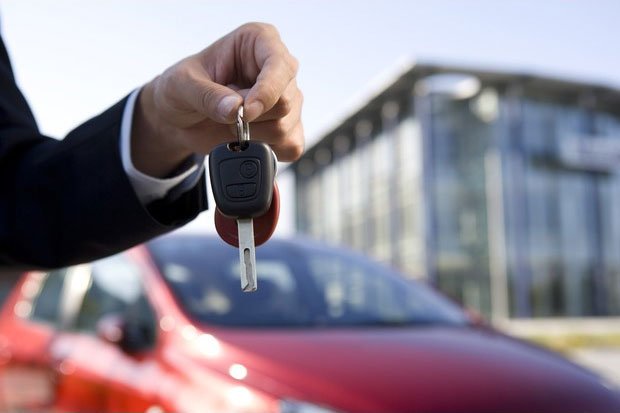Answered by Mufti Ibrahim Kureshi
Question:
There are many car dealerships, some even owned by Muslims who offer 0% financing to Muslim customers. There is a third party financing bank or institution involved in this transaction. As for the contract, the dealership adds the interest amount into the principle. They call this a murābaḥah (profit based) transaction. There is a fixed amount to be paid every month for a period of either 1 or 2 years. Would it be permissible for a Muslim customer to finance a car in this manner? Would it be permissible for a Muslim car sales man to sell a vehicle in this manner when they are dealing with a bank or financial institution?
Answer:
Leasing
When leasing a vehicle, the contract will state that the actual ownership of the vehicle remains with the leasing company. A person is only registered as the operator of that vehicle and not as the owner. As such, any payment made to the leasing company is viewed as rent and not as a financing payment to acquire ownership. It should be noted that the owner of an asset can charge any mutually agreed-upon rate when renting that asset. This rate can include an interest component as most leasing contracts do. In this type of arrangement, a leasing company purchases the vehicle from a car dealership and in turn rents it out to a customer for a specific period of time at a specified price. Other conditions may surround this agreement such as a maximum mileage condition. Since this type of transaction is based on lease where the vehicle operator merely rents it; it will be permissible for one to lease.
Traditional Financing
In a traditional finance agreement, there are typically 3 parties involved: A customer, a car dealer, and a financing company. The customer and the car dealer negotiate to agree on a selling price for the vehicle. Due to the reason that the customer does not have the adequate amount of funds, the financing company is involved, as the car dealership needs full payment for their vehicle. The financing company pays the dealership the agreed upon price today, and in exchange will collect monthly payments from the customer which amounts to more than the cost of the vehicle or the amount they are remitting to the car dealership today. The difference between the amount collected from the customer over time and the amount paid to the car dealer today is their profit. This is also referred to as the cost of borrowing, the financing cost and is most often based upon some type of interest rate. In this case, the customer is the registered owner and operator of the vehicle and the only purpose of the financing company is to provide the capital to facilitate this transaction. Since this type of transaction is clearly interest based, it will not be permissible Islamically.
Cash Purchases With or Without Rebate
Cash purchases are a fairly simple transaction in which a customer pays for a vehicle through some sort of check or bank draft. In some cases, some manufacturers may offer a ‘cash rebate’ to the customer as an incentive for paying cash and not using any of their financing options. Since this type of transaction is based on a cash purchase and does not involve any financing, it will be permissible.
Note: It should be noted that if a person is withdrawing funds from a line of credit or some other type of personal loan arrangement that involves interest, this will have Islamic implications (i.e. it will not be permissible)
0% Financing As Advertised By Auto Manufacturers
Sometimes, to increase sales, an auto manufacturer will advertize 0% financing. This type of purchase is very similar to that of the traditional finance option, but with a major difference. The customer will not be paying any interest on the purchase (hence 0%) and an important element to keep in mind is that the sum of their monthly payments to the financing company would equal to the agreed upon purchase price plus any fees and taxes. The profit of the financing company in this case is not paid by the customer (as a difference between the total monthly payments and the amount paid to the car dealer) rather by the auto manufacturer.
In this type of transaction, even though the customer is financing (borrowing money from financing company) but he or she is not paying any additional amount from what he or she borrowed to the financier, hence this transaction will be permissible.
0% Financing As Offered Independently by Some Dealers, Sometimes Referred to as a Higher Priced Purchase
Some car dealerships, upon learning that the customer is Muslim and concerned in dealing with interest, will offer a type of 0% financing arrangement. In this case, the car dealer will find out the cost of financing for a specific deal and add this amount to the agreed upon purchase price of the car. They say that the price of the car is fixed and even report a 0% interest on the financing agreement. However, if we look at a key indicator from the traditional finance above, we can see that the total value of payments funded by the customer to the financing company is more than the originally agreed upon price for the car. In essence, the customer is still paying a higher amount which will make up the profit for the financing company. In such cases, this type of arrangement is the same as the traditional finance regardless of whether a finance charge is stipulated in the contract by dollar amount and percentage rate or whether the amount is added to the agreed upon price for the car, only to make the contract show a zero dollar value for finance charges and the interest rate. In this type of transaction, since the customer is paying a higher amount to the financier than what he or she borrowed, even though it may seem to be a fixed price towards the purchase of the car, it will not be permissible Islamically.
This research of various modes of purchasing a vehicle is based on extensive communication with experts and general managers of dealerships.
And Allāh Taʾāla Knows Best




